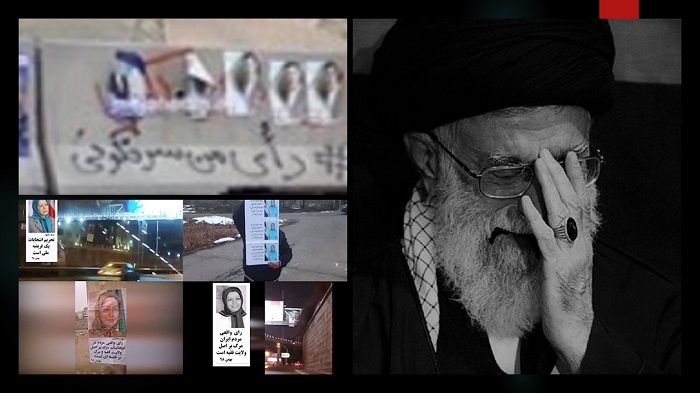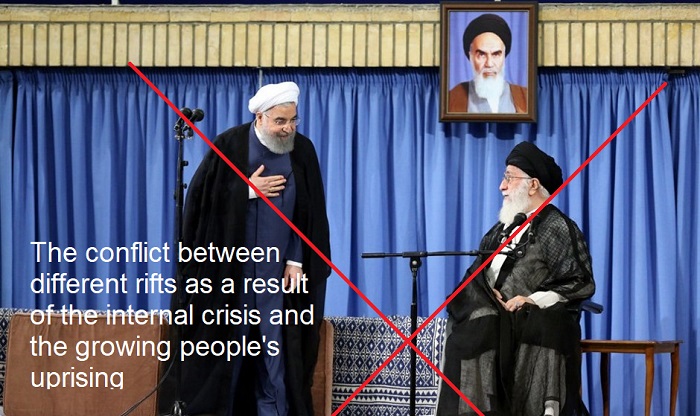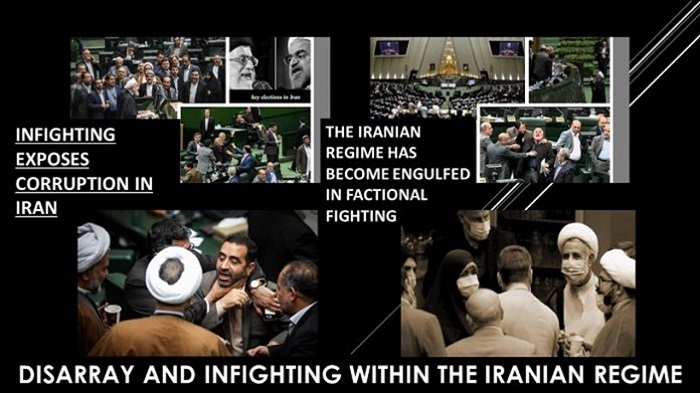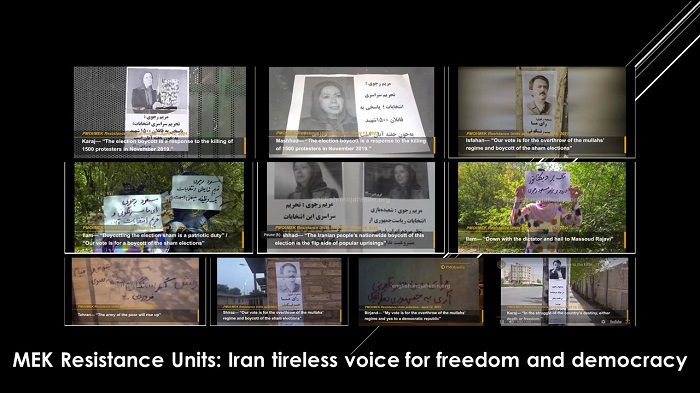
(NCRI) and (PMOI / MEK Iran): The regime takes pains to present itself as largely democratic.
Iran’s upcoming presidential election is generating renewed interest from the international community in the regime’s political structure. The regime takes pains to present itself as largely democratic, so the election of a new president draws attention from outsiders hoping for moderate leadership. Unfortunately, the outcome of Iran’s elections is mostly meaningless because the candidates all must be approved by the clerical Guardian Council, and all decisions made by the President must be approved by the regime’s Supreme Leader.
President or purveyor
This contradiction is well-known inside Iran both by government insiders and by dissidents. Last year, the People’s Mujahedin of Iran (PMOI / MEK Iran), organized a successful boycott of the Majlis (parliamentary) elections because of the futility of choosing a cleric-approved candidate.

(NCRI) and (PMOI / MEK Iran): Last year, Iranian people once again said NO to mullahs by the successful boycott of the Majlis (parliamentary) elections.
Voter participation was the lowest in the regime’s history. Regime insiders have used the same logic to criticize outgoing President Hassan Rouhani, who has voiced conflicting views with Supreme Leader Ali Khamenei.
During his Nowruz speech last month, Khamenei pushed back against assertions that Rouhani is a “purveyor” with limited authority. “That now some say that the President has no authority, the president is the purveyor, all of this is wrong. It is not like this. From all the country’s administrators, the President is busier and more responsible. Almost all of the country’s management centers are in the hands of the President,” he said.

(NCRI) and (PMOI / MEK Iran): A surge in the infighting between the Iranian regime supreme leader and its president Hassan Rouhani.
Khamenei has good reason to claim that the President has real authority. It is much easier to keep people under control when they feel they live in a democracy. Although a glance at the regime’s governmental structure is evidence that this is not true, Khamenei’s words carry weight.
The international community also needs to believe that the regime’s President is not a puppet. Iran’s democracy does not have to be real, but it does have to be plausible.

(NCRI),Mullah’s regime disintegrating.
That being said, the regime’s past Presidents have not had much success in asserting authority when it conflicted with the Supreme Leader, as evidenced below.
Abolhassan Banisadr
Banisadr held office for less than 18 months before Supreme Leader Ruhollah Khomeini sent his forces to arrest or kill him. Banisadr was forced to flee the country.
Mohammad Ali Rajaee
Mohammad Ali Rajaee was President from August 2, 1981, to August 30, 1981, when a bomb exploded in his office, killing him.
Ali Khamenei
Khamenei served two terms as President, during which he contradicted Supreme Leader Khomeini. Khomeini told him not to meddle and forced him to apologize.
Akbar Hashemi Rafsanjani
Akbar Hashemi Rafsanjani was one of the men most trusted by Supreme Leader Ruhollah Khomeini. He was elected President two months after Khomeini’s death and served two terms. He tried to run for a third term in the 2013 election but was disqualified by the Guardian Council because of conflicting views with Khamenei. After his 2017 death, many people speculated that he might have been assassinated by Khamenei’s intelligence service.
Mohammad Khatami
Khatami was the head of the Reformist faction. He contradicted Khamenei so much that he became a hated figure by hardliners and is now banned by state-run media.
Mahmoud Ahmadinejad
Ahmadinejad was one of Khamenei’s closest allies when he was elected President. He eventually contradicted Khamenei and fell out of favor. Ahmadinejad is now considered a problem for the regime.
Hassan Rouhani
The current president has contradicted Khamenei a number of times and spoken about a referendum. Rouhani has publicly acknowledged that he has no authority in his regime’s foreign policy.
Something closer to the truth
Although Khamenei himself says that the President is not a purveyor, the Friday prayers leader of Pardisa. County recently said something closer to the truth. (Friday prayers leaders are the mouthpieces of the Supreme Leader.)
“We do not want a president who has his own ideology. We want a broker to be under the command of Imam Khamenei.”

(NCRI) and (PMOI / MEK Iran): MEK Resistance Units: Iran’s tireless voice for freedom and democracy. the internal network of the MEK organized a campaign across the country calling for the boycott of the regime’s sham election.
MEK Iran (follow us on Twitter and Facebook)
and People’s Mojahedin Organization of Iran – MEK IRAN – YouTube
